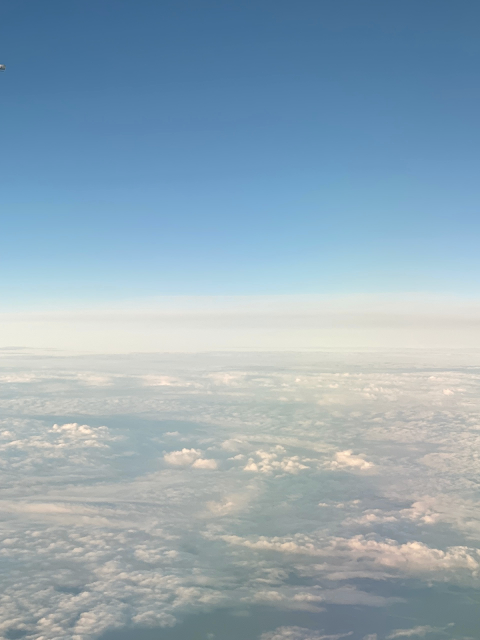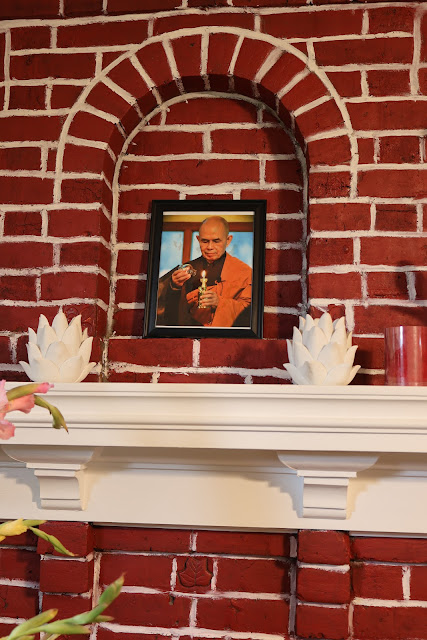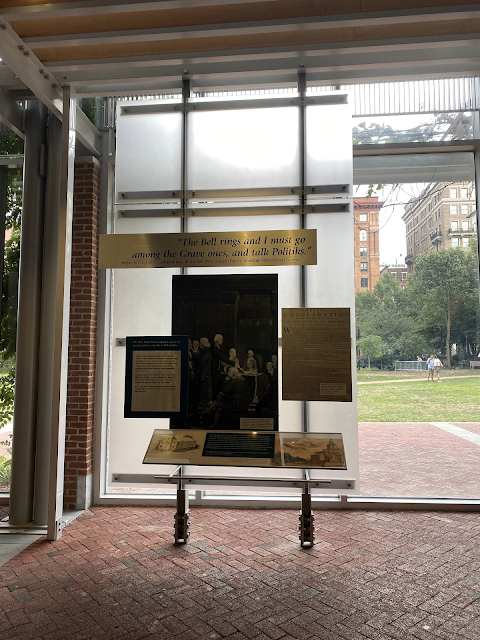my first week in america
a lot of changes have been happening during the last few months. only four months ago, I was still dying with ib exams. I remember listening to vũ thanh vân's mùa hè bất tận (endless summer) and fantasize, idealize, and put all my trust into that makebelieve freedom and happiness. thanks to my dark magic manifestation, I've been travelling a lot this summer, but that doesn't mean I understand what it means to travel, and what it means to have a home, until now. the changes have been plenty, but none of it hits as hard as moving to the us all the way from vietnam. my hopes were crashed, and I learned lessons. hard lessons.
the concentration of experience during the last 2 weeks have been insane, and I feel like if we condense my entire senior year in high school, we'd only get as close to that. I've learned a lot of things, but most importantly, what it means to have a home and a family.
chapter i. the flights
we fly from hồ chí minh city and transited at narita airport in japan and newark liberty international airport in new york before heading to philadelphia. for some reason, flying economy really inspires me to level up my financial independence and spending habits so that I can get a private jet, as they usually joke, or at least fly business, with my own money. usually, if you don't pay for the product, you would be the product. in this way, nothing is really free. if they don't take your money, your other things is going to be taken from you, including comfort, privacy, etc.
my flight from hồ chí minh city to japan lasted about six hours. I remember seeing paddy fields and different shades of green that inspired me to skip the rat race and go straight to retirement because I'm tired of trying. the airplane food was decent, although we fly in economy. I had cool conversations with the flight attendant when we was waiting to go down to narita airport. she thought I got the fan from japan, but I got that from phú bài airport in huế during my last trip to visit my grandparents. japan greeted us with sunshines and this eternal blue sky that's gonna be imprinted in my memory.
the flight to america is, ironically, the opposite. flying to the united states with united made me slowly realize what america is like. flipping through their magazine and I slowly realize how good vietnam airlines' magazine editorial team was. the design of the airplane was made in such a way to optimize seats (united's and ana's airplanes are roughly the same size, but united's has more seat, and therefore, seats are also less spacious) and business-like. there is less of a touch of culture and heritage on their flights. promotions are rampant in their magazine, and the posts are often wrote in a superficial way. reading their magazine made me realize how much I miss vietnam airlines' interviews and the way they talk about toxic masculinity in their fashion magazines. no one is going to penalize you for trying, and I'm glad we did.
beside getting an aisle seat, also try to have a decent meal at the airport, because airplane food is going to absolutely suck (especially towards the end).
chapter ii. the pagoda
since my dad's high school friend is a nun, her intense networking somehow led us to a newly opened pagoda in pennsylvania, which we stayed there for a few nights. at this point, I just operate with my stored energy and definitely not recovering from airplane food. I was okay with vegan food, until the 4th bowl of bún chay (vegan rice vermicelli) that's essentially the same. the pagoda is situated in a pretty quiet neighborhood, and it glows beautifully every time the sun rises and sets.
but sometimes religions and philosophies does not stop humans from being, well, humans. it can lessen, but not stop, the amount of fights that my mom and dad encounter on a daily basis. I could say that it's normal, and that I'm used to it now, but I would still admit that I'm never really used to it. but to see it with compassion, looking back at it as whatever it is, I think that's what makes us humans. we are not perfect, and that's okay.
I slowly accomodate to vegan food and pagoda life, but honestly, I'm not used to it and I find myself pretty tired most of the time. when I was getting the hang of it, there was this nun that is really really strict (I don't take any photo of her face), and she really looked forwards to our departure. besides singlehandedly teaching us to wash our clothes in a dryer (thank god we realized in time), she also complained on an adventitious basis about little things that irritated her. I still remember her smiling face as we step on the uber that takes us away from there. I have to thank her for teaching me the role of doubt in human evolution, because we shouldn't trust everything (aha, tok and the scientific method). practicing religions doesn't essentially make you a saint (especially when you lack basic kindness and common sense), and staying an atheist doesn't make you go to hell either. in between the extremisms, life lies.
chapter iii. washington dc
on our third day at the pagoda, cô and thầy drove us to washington dc to see washington monument and the white house. in a nutshell, washington dc feels like a series of building with serif fonts on it, which makes everything look so serious and lack of livability. the only stuff with sans-serif font on it is those vans that sells ice cream and boba tea designed in a I'm a dEsIgNeR kind of way.
no offense to washington dc based people, but I can't understand how some people know about washington dc but not pennsylvania. I mean dc is the capital, yes, we all know that, but how can you not know that the 100 dollar bill carries the face of benjamin franklin and the independence hall in pennsylvania? I mean that's where the consitution got written, and where america was pretty much born. that's what we talk about when we talk about we the people and 1776.
chapter iv. philadelphia
we went to philadelphia on many ocassions, and I feel differently about the city on every visit. it's the sort of difference when you think you know a place, compared to when you actually understand a place. it depends on how you travel, and the people that you travel with.
our first visit was to visit the liberty bell. after that, we mainly just sit in the car and look at the buildings: the independence hall, philadelphia city hall, etc. our second visit was to shop the stuff I still lack, which I went with my mom. we walked through shady neighborhoods, the smell of vape and urine revolves around me many times. compared to the first trip, this time it was not simply visual, but a sensory experience. we look up to see the cupolas, the ideals, and we look down to see people without a home or proper clothing, the reality. what is truth? you may ask. truth is what you chooses to see, what you believe in. that's your truth.
chapter v. crying in h mart
is a biographical book by michelle zauner about how the relationship with her mom and her heritage through food and many other ways. fyi, michelle zauner is an alumna from my school, and her book won the 2021 goodread choices award. she's also a member of japanese breakfast, which was nominated a grammy in 2022. travelling to the us helps me realize that crying in h mart is not simply a book, but a sensation.
the first thing that I miss is the food: the ingredients we use, and the way we cook our food. later comes the feeling of eating with one's family. in vietnam that's the thing that we give away and share, but here, it becomes a thing that you need to pay to experience. that night eating in a chinese local restaurant with my mom helped me realize that everyone is going to have different ways to integrate themselves into american culture, and it also poses the question: how am I going to do that and tell my story? for some people, it is the food that they eat, the way they braid their hair and wear it with pride, etc. but for me, I think reading, writing (and hopefully cooking) would be the way.
one's original culture is a glowing torch. when you depart from the nest that nourished you to another country, you bring within you little flames that you need to protect agaisnt the winds of cultural dilution before you can light them up to other generations and people from different backgrounds. after all this, I still find it fascinating how all of us have different ways to do that, and if we ever choose to do it at all.
I did cry, but not in h mart. I cried in hung vuong food market. don't let the name fool you, because it is actually chinese, that's why they call it hung vuong and not hùng vương. that's also why welcome is translated as hoan nghênh and not chào mừng. we were buying ricecookers, bowls, chopsticks, etc. for my dorm. for a brief moment, I don't think people go into those stores and h marts to only buy something, but to look for a sensation of their homeland that are thousands of kilometers away from here. they search memories that were lost in the corners of the past, those glimmering bits of bygone golden days. it is that feeling you have when you go to a place that you used to go to with your favorite people, only to visit it, months or years later, without them. that place and dish withstood the test of time, but not the people you love. our ideas are forever, but we are not forever. the negativity is there, and how you transform and channel that energy into craft, is your art.
I cried all the way back to school. I cried every single morning I wake up the first few days after moving into college. I could not eat rice and not cry. feelings come in constructive and destructive waves, and I was not always floating. I drowned. but like the sine graph, we set, only to rise again.
I felt a whole lot better after being able to send my parents letters all the way from pennsylvania. in the process, I was learning how to send and check mail, and it really felt like physically getting my life together. I journal like there's no tomorrow. I tell others how I'm feeling, and end up being able to connect with a batch of international students that are basically going through the same phase. changes are hard, and we do have fears, but together, we have less fear than we do when we're alone.
for now, these will be the last lines for me to process what I've been through before stepping in a new year of challenges and rewards. read on to see what I've learned, read, and listened to.
chapter vi. what I learned
everyone can pay for service, but only some get its values
if you don't have a car in the us, chances are you'd have to take an uber at some point. I took many uber trips, some of them are uncomfortable and expensive at the same time. with every uber ride, I just become more determined to make my experience a bit more bearable. there were uber trips that I could really connect to the driver, and the trip become priceless. I talked to anik from bangladesh about our favorite movies, and he told me his experience with moving to the united states and struggles with adulthood. I talked to korene from nebraska of how the us ambassador to vietnam greeted us a happy new year with his vietnamese rap, and she showed me restaurants nearby that we could enjoy. when you share something, there's a higher chance that you'd receive something back.
those were the cherries from the top. I've met drivers that didn't give a shit to help us with our baggages or have dirty vehicles and a very rude attitude to services. life happens, but those days when I met nice drivers and conversations I had really made up for it.
sowing and harvest seasons
have you ever read the bible in a pagoda? well, at least I did. I was feeling very stuck, and words of guidance really fell from thin air in a mannawise manner, that is, when you need it. mùa gieo (sowing season) and mùa gặt (harvest season) hit me.
I had been very discontented looking at other people's lives. people that are over 30 and had this place in society and a family of their own. the grass is always greener on the other side. for my side, nothing was growing, and I didn't know why. then I realized I haven't sown anything yet. like anything in life, sowing takes time.
there is a time for everything,
and a season for every activity under the heavens:
a time to be born and a time to die,
a time to plant and a time to uproot,
a time to kill and a time to heal,
a time to tear down and a time to build,
a time to weep and a time to laugh,
a time to mourn and a time to dance,
a time to scatter stones and a time to gather them,
a time to embrace and a time to refrain from embracing,
a time to search and a time to give up,
a time to keep and a time to throw away,
a time to tear and a time to mend,
a time to be silent and a time to speak,
a time to love and a time to hate,
a time for war and a time for peace.
— ecclesiastes 3:1-8
according to joyce meyer ministries, ecclesiastes 3:1 tells us that there is a time for everything. we don't live in the same seasons at the same time. there will be people that are cherishing their harvest season, while we are still in the sowing season. in those moments, let us remember that they have been through a sowing season just like us.
between the sowing season and the harvest season is the waiting season. the roots are penetrating deeper into the ground. it happens underground, and it takes time for it to happen. from the other side of the earth, we could not know what is happening.
after we have sown the seeds, we could felt like nothing has happened, but everything is still happening, from a place that we cannot know. like the seeds that germinated from the earth into robust green buds, our seeds shall eventually result in a fruitful harvest season, as long as we wait and take care of it.
other than that, if you've read a few books of the bible like me, you'd notice how rest is taken very seriously (anyone who does work on sabbath day shall be put to death — exodus 35:2). there're even festivals every 7 or 49 years where everyone, even slaves, cattle, and the land, are allowed to rest. there is no restoration without rest. even in music, rest is an essential in helping notes make sense: how much rest, and when to rest.
rest does not mean that nothing is happening. it is rather allowing things to be as it is, and taking the time to reflect on whatever we've been through. take time to enjoy life.
chapter vii. appendix
podcasts, books, and stuff that I've beeen coming back to that hits me like a truck
adulting
giang ơi radio
creativity
what I talk about when I talk about running — haruki murakami
keep going — austin kleon
walden — henry david thoreau































Comments
Post a Comment